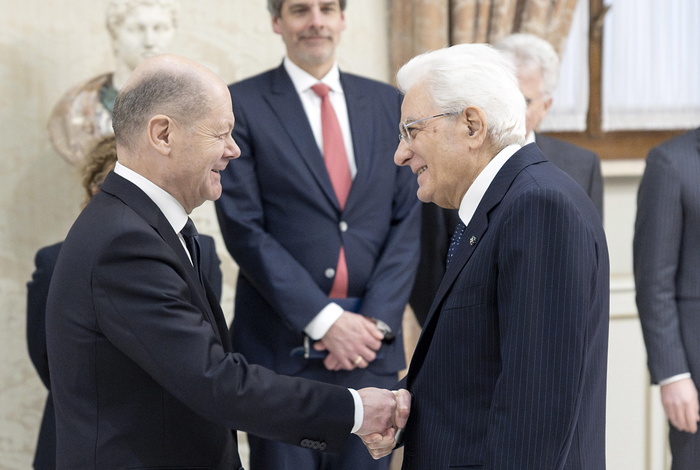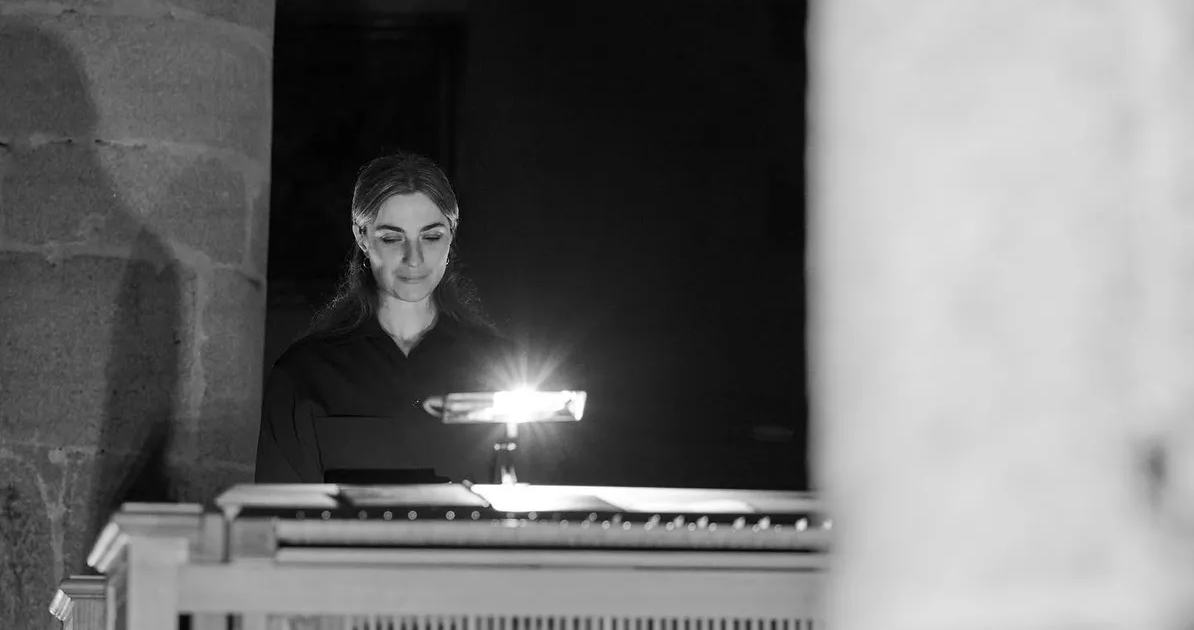Scholz starts concerted action
Created: 07/04/2022 07:52
Federal Chancellor Olaf Scholz on the rising energy prices: "This is socially explosive." © Christoph Soeder/dpa
Inflation has gripped gas, petrol, groceries and other commodities.
The Chancellor wants to take countermeasures with a concerted action.
He is confronted with numerous demands.
Berlin - At the start of the so-called concerted action against the price increases, calls for additional relief for the citizens have become louder.
According to Chancellor Olaf Scholz (SPD), there should be no results at the start of the campaign this Monday.
Scholz had initiated the dialogue with trade unions, employers, the Bundesbank and scientists in order to counteract the price pressure.
Scholz' goals
Scholz is very concerned about rising energy prices, as he said in an ARD interview on Sunday.
"If the heating bill suddenly increases by a few hundred euros, then that's a sum that many people can't really cope with.
This is social dynamite.”
The chancellor is aiming for a longer-term process.
Observers expect that decisive rounds of concerted action will not follow until after the summer break - when the actual extent of the energy and price crisis becomes clearer.
The most pressing problem at the moment is the price of gas.
Economics Minister Robert Habeck (Greens) warned of a price explosion at public utilities if Russia turns off the gas tap and large suppliers continue to get into trouble.
A chain reaction with far-reaching negative consequences seems possible.
The biggest challenges in terms of prices overall - according to Scholz - will not follow until next year.
"For this year, almost everyone who did the math says we've absorbed about 90 percent of the price increases among lower- and middle-income people through the many measures we've taken."
Historical model
1967 saw the first downturn in the economic boom of Germany.
The SPD Economics Minister Karl Schiller therefore wanted to coordinate the anti-crisis policy in a concerted action with employers and trade unions.
The state wanted to use its own measures to influence price developments and the economy.
Consensus with the social partners should help in the matter - and strengthen democracy and community spirit.
Scholz wants that too - his motto: "We have to hook up and stick together."
also read
Forms for property tax 2022: Elster has to pay attention to a number of things
Gas crisis in Germany: New law could now give consumers a nasty surprise
union demands
DGB boss Yasmin Fahimi campaigned on Sunday for a price guarantee for basic electricity and gas needs.
She told the "Bild am Sonntag" that the basic needs of every adult and every child should be determined in advance.
Left faction leader Dietmar Bartsch made similar demands at the editorial network Germany (RND).
In principle, the unions resist the idea that price increases are fueled by higher wages.
Verdi boss Frank Werneke said: "Permanently rising prices must be fully offset by permanently effective collective wage increases." This also applies to pension adjustments and the minimum wage.
The relief must be delivered later.
Interjection by the Federal President
Federal President Frank-Walter Steinmeier also called for further relief.
"We haven't experienced that before, four times higher prices, not only at the gas stations, but above all for the gas," Steinmeier said on ZDF at the weekend.
Instruments will have to be considered to make life easier, especially for low-income earners.
The Chancellor is reticent.
Scholz pointed out the previous relief measures amounting to 30 billion euros.
"Right now all these measures are being rolled out," he said.
"It won't work now by agreeing on a 30 billion euro package (...) and then we'll discuss the next ones again."
Controversial one-time payment
The unions were not very enthusiastic when it was reported that Scholz wanted to relieve the employees with a one-off payment - to be paid by the company, flanked by the state, which would waive taxes and duties on the money injection, and compensated a bit by union wage restraint in collective bargaining.
Scholz has now rejected such reports as "a free invention".
"Of course we thought about how we could support union activities, especially when prices go up next year," he said.
"But no one is suggesting that that's why the actual pay rises shouldn't happen."
Greens for redistribution
Basic security and generally small and medium incomes should be relieved - that's what the Greens are demanding.
Your deputy parliamentary group leader, Andreas Audretsch, has brought into play a contribution from the particularly wealthy.
"Everyone must now ask themselves how they can make a contribution," said Audretsch.
"This is especially true for those who have a lot, for the richest."
FDP against more spending and higher taxes
Federal Finance Minister Christian Lindner rejects more debt and higher taxes.
This "would be toxic and an impoverishment program," said the head of the FDP to the German Press Agency.
Even massive increases in government spending are out of the question for him.
"A central contribution of the state is to avoid additional price pressure through solid finances." Instead of just dampening the consequences of inflation, the state must fight the causes.
"At the same time, we should reduce price-driving subsidies and do everything we can for cheaper energy."
Different accents of economists
"Only higher wages and social benefits can compensate for the damage to people with middle and low incomes in the long term," said the President of the German Institute for Economic Research (DIW), Marcel Fratzscher, the dpa.
The economist Achim Truger, on the other hand, told the Bayern media group that there should be no excessive wage increases.
However, a continuation of the corona-related wage restraint does not make sense either.
"In principle, it would also be possible to curb inflation through temporary energy tax cuts or price caps," says Truger.
"However, that would be counterproductive because it would reduce the current savings incentives, which are so important."
Employers are most concerned that the companies do not get into even more difficult waters - even if they suffer from supply bottlenecks and energy prices.
More suggestions
The social climate money proposed by Labor Minister Hubertus Heil (SPD) should come back to the table in the concerted action.
According to the proposal, climate money should be paid once a year - for single people who earn less than 4,000 euros gross per month, and for married couples with a total of less than 8,000 euros.
The CDU social wing called for a reduction in VAT on staple foods.
The new Linke chairmen Janine Wissler and Martin Schirdewan demanded a price cap for staple foods in the "Süddeutsche Zeitung" (Monday).
dpa















